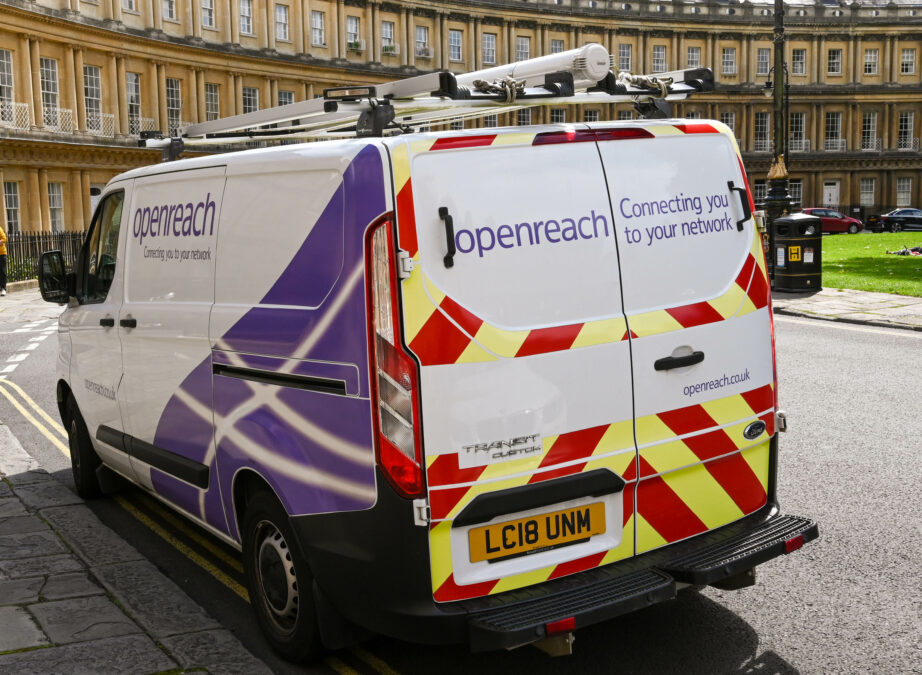CEO of BT’s Openreach blames ‘tortuous’ Home Office process preventing skilled engineers coming over from Portugal and Spain to help government meet its target of all businesses having superfast broadband by 2025
Britain’s ability to roll out superfast broadband across the country is being slowed by the “tortuous” process of recruiting workers from the EU following Brexit, the head of BT’s networking business has told the Financial Times.
Clive Selley, chief executive of BT’s Openreach, the division leading the rollout of fibre optic networks, said countries such as Portugal and Spain have plenty of people with the necessary skills to accelerate the delivery of superfast broadband.
Spain and Portugal have almost completed rollout of fibre optic networks, which means there are plenty of EU workers with the necessary skills, he said.
“They want the work, we want the skills and the Home Office have a process that is tortuous,” Selley told the newspaper. “We are constraining the rate of fibre build in the UK through the process.”
“If it was easier getting people in, I would take a thousand tomorrow,” he said, referring to contractors rather than full-time staff.
The government has pledged to deliver full fibre and gigabit-capable broadband to every business across the UK by 2025.
However, addressing London Tech Week yesterday to announce the government’s new digital strategy, technology and digital economy minister Chris Philp denied that Brexit had any detrimental effect on the UK’s tech ambitions.
No Brexit impact
“Brexit has not impacted tech one iota,” Mr Philp said. “In fact, it creates opportunities because we can adopt a more flexible regulatory regime. So we’re reducing the burdens imposed by GDPR [for example]. And making sure that data can be better used for innovation.”
The new Department for Digital Culture Media and Sport digital strategy to attract and grow businesses includes setting up a “digital skills council” to help plug the gap in the technology workforce and a strategy to develop artificial intelligence.
Mr Philp promised a “very light-touch approach” to forthcoming regulations in areas such as digital competition due later this year. “Lighter regulation is going to be a source of competitive advantage,” he told the conference. “We have an opportunity to turn the UK into a free trade hub for digital.”
Last year, chancellor Rishi Sunak told GrowthBusiness that he wants UK pension funds to invest more in fast-growing tech start-ups — a point reiterated by Mr Philp.
“The UK pension system is missing out on higher returns. Their pensioners are missing out on those returns,” said Mr Philp. “Make allocations to UK tech — your pension will be better off.”
He also said that “tech drives innovation, increases productivity, creates new things, whereas buying bonds or buying a bunch of listed equities in very long-established companies [is] not so much really creating anything new”.
Related:
Government to unveil strategy to boost UK tech industry – The department for culture, digital and sport is aiming to increase investment into AI, quantum computing and digital health
Broadband delivered via water pipes being trialled in South Yorkshire – The UK Government is trialling deployment of full fibre broadband via water pipes located in South Yorkshire










